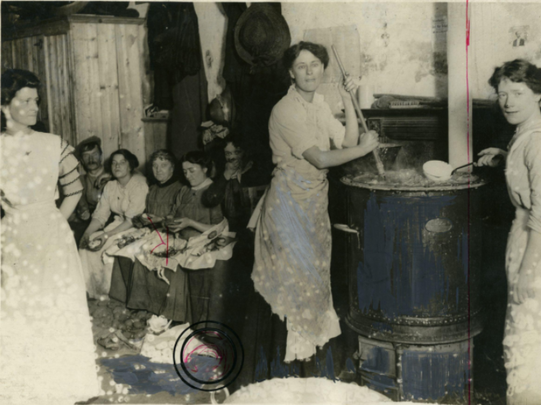Mná100 celebrates the diverse contributions of the women of Irland during the revolutionary period documented with a new online resource.
A government program, part of Ireland's Decade of Centenaries, Mná100 (meaning Women100) is a commemorative program to document women in our history, particularly their contribution during the Irish Revolutionary period, 1912-1923. How better to honor your Irish ancestors this International Women's Day than exploring their history through the last 100 years.
Mná100's objective is to highlight the experiences and influence of the women who lived during this period of immense change. Some are well known and have contributed significantly to Irish political life and public service. The voices of others have never before been heard or have long since been forgotten.
New research, scholarship and archival discoveries have enhanced our understanding. Mná100 showcases new collaborative initiatives that shine a light on women’s participation in political, military, professional, and domestic roles, including stories and material previously not accessible to the public or widely known.
Ahead of International Women’s Day, Minister for Tourism, Culture, Arts, Gaeltacht, Sport and Media, Catherine Martin, encourages engagement with the Mná 100 online resource and has outlined commemorative plans for the year ahead.
Martin said, “Mná100 has gone from strength to strength these past few months and I encourage everyone to engage with this valuable resource as we continue our Decade of Centenaries Programme."
She added “This online platform brings a range of women to the fore with unique yet universal stories. This International Women’s Day, I encourage everyone to use this resource to learn more about women from our shared past whose stories will resonate and inspire."
Also this month, Europeana will feature an article about Mná100 on their website. Europeana is Europe’s platform for digital cultural heritage. This platform gives easy access to a range of cultural heritage for education, research, creation and recreation.
Marijke Everts, who coordinates Europeana’s Women's History Month campaign, said:
"Each year, Europeana marks Women’s History Month by sharing collections, projects and stories which celebrate women’s achievements throughout history and today. In doing so, we aim to reflect the diversity of Europe. Our article highlights the important role of Mná100 in bringing the stories of Irish women's history to the forefront.”
Visit www.mna100.ie to find out more this International Women's Day.
What's on!
Tour of Dublin's Mansion House
On 13 March 1922, Cumann na Saoirse had its inaugural meeting, formed of those whose supported the establishment of the Irish Free State. The meeting in the Mansion House was presided over by Jennie Wyse Power. Ali Morris will share her expertise and new insights on the contribution of Jennie Wyse Power by taking us on a walk through the historic Mansion House one hundred years on. This will be shared on Mná100.ie and St Patrick’s Festival TV.
Cork's "Ordinary People"
In April, Mná 100, in partnership with Cork City Council and library services, will host a public conversation in Cork City Library, Grand Parade, to examine how ‘ordinary people’ recalled events. The event will be hosted by Mná 100 on the 100th anniversary of the ‘Cork Manifesto’ which issued on 6th April 1922. It will have a special focus on first-hand accounts of those days in Cork from the papers of Lil Conlon, author of Cumann na mBan and the Women of Ireland, (1969) housed in Cork Public Museum. This event will also be live-streamed and will encourage active audience participation.
Mná 100 Centenary Podcast
The fourth episode of the Mná 100 Centenary Podcast Seeking Peace examines those Peace Delegations of May and June 1922 which were led by women, including Kathleen Clarke and Maud Gonne MacBride. Speakers will discuss the influence of the women involved in these peace-seeking initiatives as well as their own experiences of leadership and peacebuilding.

Love Irish history? Share your favorite stories with other history buffs in the IrishCentral History Facebook group.




Comments